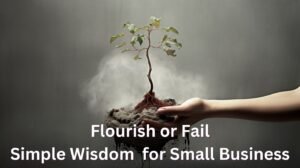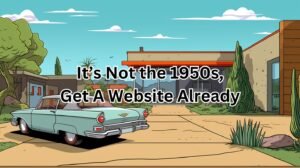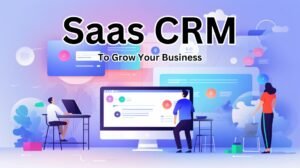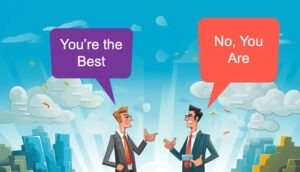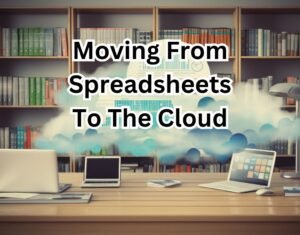How Do I Apply Old School Methods to a Modern CRM?
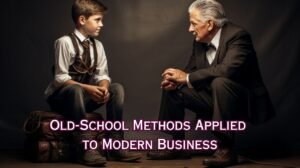
Navigating through the digital landscape of modern Customer Relationship Management (Modern CRM) can sometimes feel like steering a ship through uncharted waters. But, if we anchor ourselves with the timeless wisdom of business moguls from the 1900s, we might find that the principles of successful customer and business management have remained largely unchanged. Let’s explore how we can intertwine these old-school methods with today’s CRM technologies.
1. Building Genuine Relationships:
- Old School Wisdom: Rockefeller emphasized the immense value of people skills.
- Modern CRM Application: Use your CRM to truly understand your customers. Keep track of their preferences, purchase history, and interactions with your business. Personalize communications and ensure every interaction adds value to their experience, thereby building a genuine relationship. Use the task management function to keep track of it all.
2. Valuing More Than Profits:
- Old School Wisdom: Henry Ford reminded us that a business should be about more than just making money.
- Modern CRM Application: Leverage your CRM to enhance customer experiences and provide solutions that genuinely benefit them. The classic example of this is providing an easy way for them to pay their bill, offering things like link to pay, and the ability for them to use tools, like Venmo, is less about making money, and more about providing convenience.
3. Teamwork Makes the Dream Work:
- Old School Wisdom: Carnegie highlighted the power of collective effort towards a shared vision.
- Modern CRM Application: Ensure that your CRM becomes a collaborative tool for your team. Share information, insights, and customer data across departments to ensure everyone is working towards the same organizational objectives. A unified team enhances customer service and fosters a positive company culture.
4. Customer Appreciation:
- Old School Wisdom: A simple “thank you” goes a long way, as per Dale Carnegie.
- Modern CRM Application: Utilize your CRM to set up automated thank-you emails, rewards, and loyalty programs. Ensure that customers feel appreciated and valued after every interaction or purchase. This not only enhances their experience but also fosters loyalty towards your brand.
5. Adaptability and Innovation:
- Old School Wisdom: Business leaders of the past were pioneers in their fields, unafraid to innovate and adapt.
- Modern CRM Application: Ensure that your CRM system is flexible and can adapt to changing business needs. Regularly update it with new features and ensure it evolves with technological advancements and changing customer expectations.
In essence, while CRM systems offer a plethora of modern tools and functionalities, the core principles of successful business management — valuing people, building genuine relationships, and working towards a common goal — have remained steadfast through the ages. By marrying the timeless wisdom of yesteryear’s business leaders with the technological capabilities of modern CRM, businesses can navigate the path to sustainable success and customer satisfaction.
Imagine You’re an Artist, and Your Canvas is Your Modern CRM.
The colors on your palette represent the different aspects of your business: your customers, your team, your products, and your services. A CRM (Customer Relationship Management) system is like having a guide on how to mix those colors perfectly to create a masterpiece – a thriving, successful business.
In the context of “Flourish or Fail with CRM: Simple Wisdom for Businesses,” think of the CRM as your art assistant. It helps you keep track of all your customers (your admirers), manage your tasks (your art projects), and ensure that you get paid on time (selling your artworks).
- Building Genuine Relationships: Just like how you might remember which clients love your landscape pieces and which prefer your portraits, a CRM remembers your customers’ preferences and helps you communicate with them in a way that shows you understand and value them.
- Valuing More Than Profits: Your art is more than just a source of income; it’s a passion. Similarly, a business should provide genuine value to its customers, not just sell products. A CRM helps you understand and cater to your customers’ needs, ensuring they find real value in your offerings.
- Teamwork: Imagine collaborating with other artists on a mural. You need to work together, sharing ideas and coordinating efforts to create a cohesive piece. A CRM helps your business team collaborate effectively to serve customers seamlessly and work towards common goals.
- Customer Appreciation: Just as you might send a thank-you note to someone who purchased your art, a CRM helps businesses show appreciation to their customers, enhancing their experience and building loyalty.
- Adaptability and Innovation: As an artist, you might explore new styles or mediums to express your creativity. In business, a CRM helps you innovate and adapt by understanding changing customer needs and market trends, ensuring your business stays relevant and continues to meet customer expectations.
In essence, a CRM helps you blend all the colors of your business harmoniously, ensuring each stroke (interaction) leads towards creating a masterpiece (a successful business). So, with the wisdom from business leaders of the past and a modern CRM, your business, like your art, can truly flourish.

